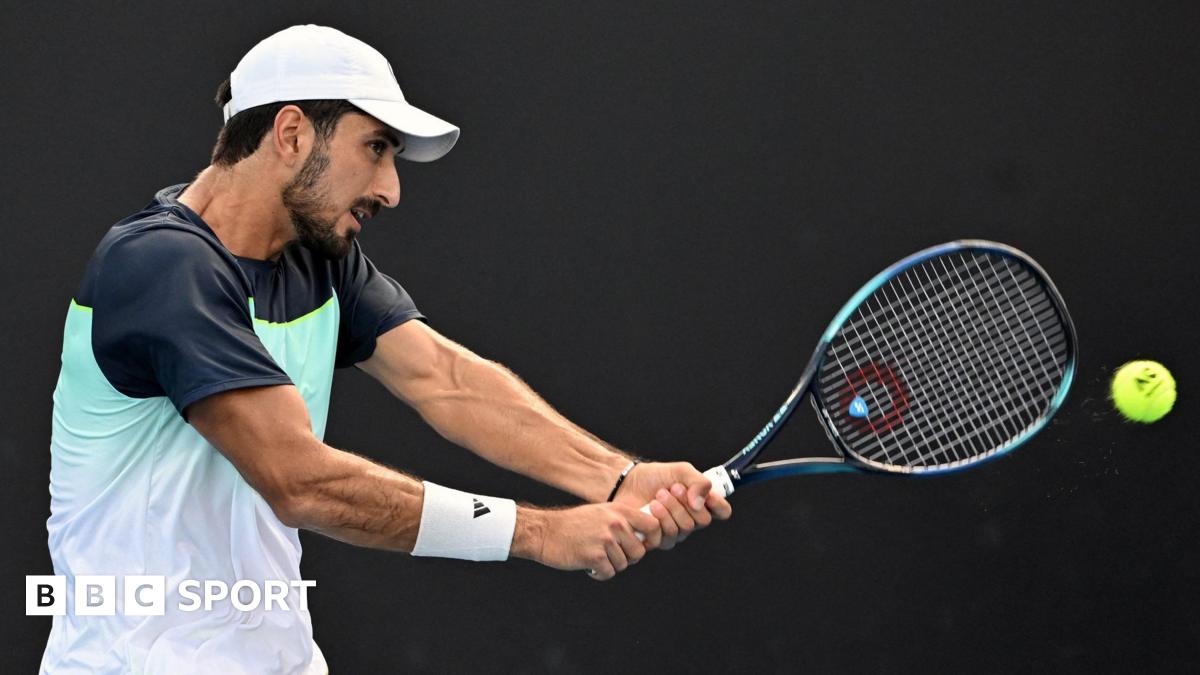Sabalenka shows the poise of a champion in surviving tricky clash

- by Admin
- January 12, 2025
Aryna Sabalenka’s first-round match at the Australian Open was a test in more ways than one.
Sabalenka, the two-time defending champion at Melbourne Park, overcame a tricky test against America’s Sloane Stephens, registering a 6-3, 6-2 win on the opening day of the tournament.
Stephens may not be the player she once was, but she is still a former grand slam champion, and most players on tour would prefer not to face an ex-champ in the first round.
While Stephens is a former US Open winner, it was Sabalenka who opened the match with the confidence and swagger befitting of a defending champion, racing out to a 4-0 lead before parts of the crowd had settled into their seats inside Rod Laver Arena.
However, just as Sabalenka might have begun thinking about a first set bagel, Stephens stormed back to get things on serve, breaking the Belarusian in two consecutive service games.
Sabalenka is far removed from the player who struggled with the yips on her serve a few years back, but here was the serving gremlin rearing its ugly head out of nowhere.
As she began spraying her first serve, racking up a double-fault along the way, Sabalenka’s frustrations started to come out. She gesticulated to her support network in the stands with increasing regularity.
The energy inside the stadium changed as well, as the crowd sensed a potential upset or at least an epic three-setter. It was suddenly gut-check time for the reigning champion, and she passed the early test with flying colours.
“I think I kind of stepped back after a few games didn’t go well. I stepped back, and I gave her a chance to come back in the match,” she told reporters at Melbourne Park.
“I’m glad that in that game on 4-3 I stepped in and I was like going forward to the net.
“I think that was the key to get back to this match.”
Being able to make that key adjustment on the fly is something Sabalenka admitted she would not have been equipped to do a few years ago.
“I think it’s a big difference comparing myself to even like three years ago,” she said.
“In that moment I would get frustrated and probably would lose the first set. I’m not sure if I would be able to win the match. That’s what I remember.
“I’m really glad that I improved my mental toughness. I’m able to stay focused no matter what the score, what the situation is.
“I’m focusing on the game, on the point. I’m focusing point by point.”
Sabalenka’s steadying attempt was helped out, in her opinion, by avoiding the change to the players’ support boxes.
Historically, players have had their entire coaching team as well as any loved ones all sitting in the same area. However, with the introduction of the coaching pods courtside, players are forced to look in two separate areas for some support in trying moments during a match.
Sabalenka’s camp took the traditional route by sitting together in the stands.
After her win, the world number one joined male counterparts such as Stefanos Tsitsipas and Denis Shapovalov in criticising the change.
“Honestly, it’s not like I’m a big fan of that decision [to add coaching pods],” she said. “If you do that, then make more seats.
“For example, me personally, I like to see the whole team. I want to see the whole [group] in my box.
“Even if I’m not looking at each person in my box, I always look at my coach, but I still see everyone. For me that’s important.
“Sometimes I just want to look at my boyfriend for the support, for example.
“I just didn’t want to, like, look at the coach first, then look in the box because I have a lot of coaches. Four seats is not enough.
“If they would make it eight seats, I don’t know how, but it would be much better for me.
“So we decided to put everyone in the box. Maybe they were kind of like tight there and not comfortable, but I was comfortable to see all of them.”
Aryna Sabalenka managed to get on top of her service issues in the nick of time against Sloane Stephens. (Getty Images: Hannah Peters)
Sabalenka is aiming to join a rare group in two weeks’ time. If she wins the title again, she’ll become just the fifth woman to three-peat at Melbourne Park, joining Margaret Court (1969-71), Evonne Goolagong (1974-76), Steffi Graf (1988-90) and Martina Hingis (1997-99).
It’s not something she’s thinking about just yet though.
“The biggest lesson I learned last year is just not focusing on defending title or having the opportunity to put your name in history,” she said when asked about her three-peat prospects.
“I think the key is just to keep focusing on yourself and trying your best and see what happens after the tournament.
“I don’t know. Let’s talk about that after I finish the tournament, hopefully with a three-peat, then I can tell you which one was the toughest one.”
The Latest News
-
January 12, 2025Can this Aussie teen cause another upset at the Australian Open?
-
January 12, 2025Nearly a million Australians work two or more jobs
-
January 12, 2025Hungry for history: Why 24 slams and Olympic gold is not enough for Novak Djokovik
-
January 12, 2025‘I kinda went nuts’: Why a made cut was such a big deal to this new PGA Tour rookie – Australian Golf Digest
-
January 12, 2025Where to watch Nick Kyrgios vs. Jacob Fearnley: Start time, TV channel, live stream for Australian Open 2025 | Sporting News Australia




